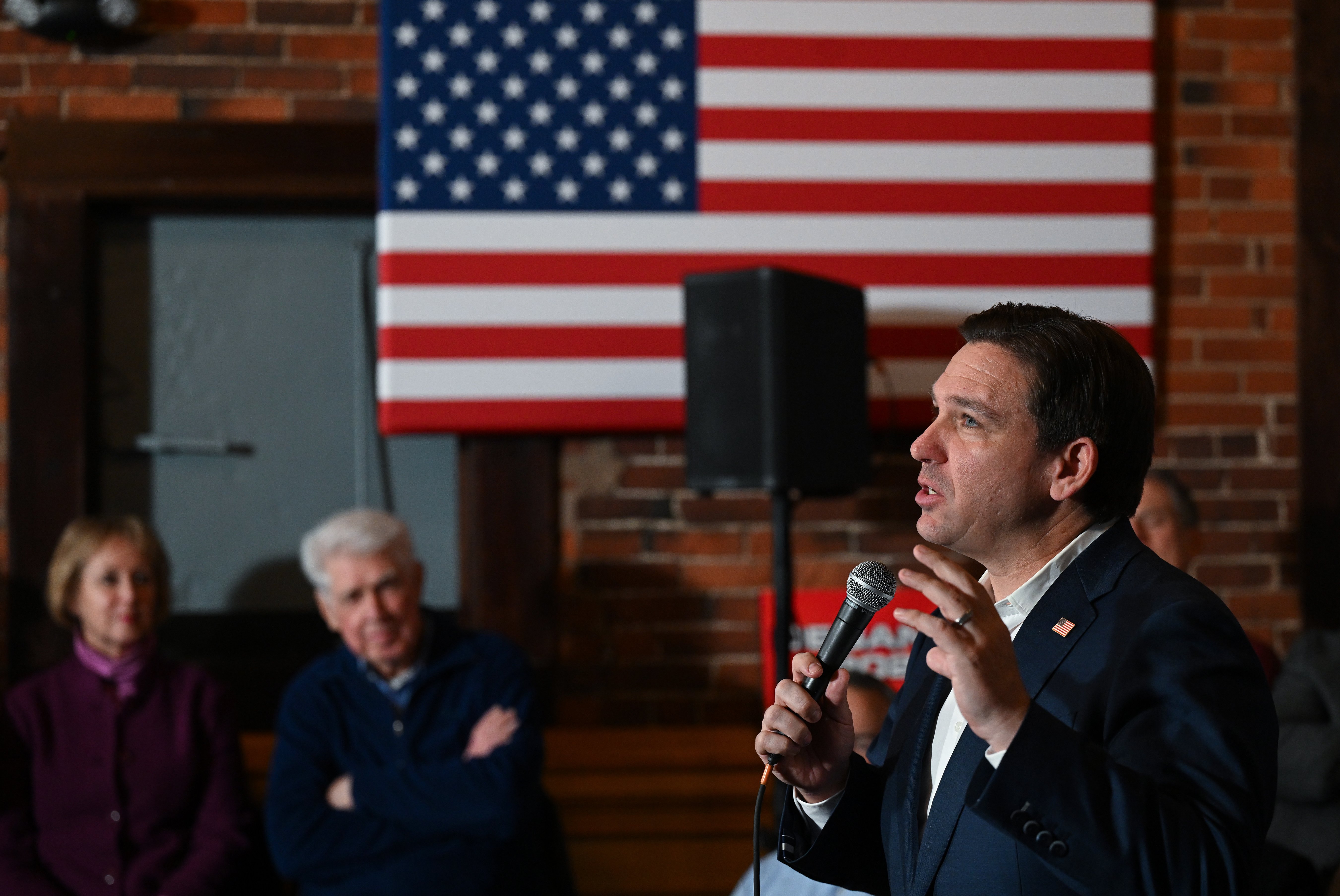Appeals court blocks Florida 'Stop Woke Act,' says it's a 'First Amendment sin'

Florida Gov. Ron DeSantis speaks in February in Dover, New Hampshire. (Matt McClain/The Washington Post)
A federal appeals court on Monday upheld a ruling that blocked Florida from enforcing a law, backed by Gov. Ron DeSantis, that restricts how private companies teach diversity and inclusion in the workplace.
A three-judge panel of the U.S. Court of Appeals for the 11th Circuit ruled Monday that the “Stop Woke Act” “exceeds the bounds” of the U.S. Constitution’s First Amendment right to freedom of speech and expression in its attempts to regulate workplace trainings on race, color, sex and national origin. The appeals court upheld a federal judge’s August 2022 ruling that said the same.
“By limiting its restrictions to a list of ideas designated as offensive, the Act targets speech based on its content. And by barring only speech that endorses any of those ideas, it penalizes certain viewpoints - the greatest First Amendment sin,” Judge Britt C. Grant wrote in Monday’s opinion.
Julia Friedland, a spokeswoman for DeSantis, said in a statement Tuesday that the governor’s office is “reviewing all options on appeal going forward.”
“We disagree with the Court’s opinion that employers can require employees to be taught - as a condition of employment - that one race is morally superior to another race,” Friedland said. “The First Amendment protects no such thing, and the State of Florida should have every right to protect Floridians from racially hostile workplaces.”
The “Stop Woke Act” was approved by the Republican-controlled Florida legislature in March 2022. The act was one of DeSantis’s top priorities, and before he dropped out as a possible candidate for president in 2024, it was a routine talking point on the campaign trail.
Also referred to as the “Individual Freedom Measure,” the “Stop Woke Act” prohibits trainings in workplaces, public schools, colleges and universities that could lead someone to feel guilty or ashamed about the historic actions of their race or sex. A violation of the act is an offense under state anti-discrimination laws, The Washington Post previously reported.
Monday’s ruling focused on the workplace-related provision of the law after Florida-based companies filed a lawsuit against the state. Honeyfund.com, an online wedding registry website in Clearwater, argued in court that the law would prevent it from holding an employee seminar about women’s advancement in business and institutional racism. Primo, a franchise of Ben & Jerry’s Ice Cream with stores in Clearwater and Tampa, argued that it would be prevented from teaching employees about “systemic racism, oppression and intersectionality,” The Post reported.
DeSantis had framed the “Stop Woke Act” as a tool for employees to “stand up against discrimination.”
“No one should be instructed to feel as if they are not equal or shamed because of their race,” he said in a statement in 2022. “In Florida, we will not let the far-left woke agenda take over our schools and workplaces.”
He and attorneys for the state argued in court that the measure is a ban on conduct - private companies’ requirement that employees attend such meetings - not speech, according to Monday’s opinion.
Grant, who was appointed by former president Donald Trump, disputed that claim.
“Florida’s attempts to repackage its Act as a regulation of conduct rather than speech do not work,” Grant wrote in the opinion. “ … Even if we presumed that the act served the interest of combating discrimination in some way, its breadth and scope would doom it. Banning speech on a wide variety of political topics is bad; banning speech on a wide variety of political viewpoints is worse.”
The group representing the companies suing the state called Monday’s ruling “a major victory for free speech in the workplace.”
“Speech codes have no place in American society, and elected officials have no business censoring the speech of business owners simply because they don’t agree with what’s being expressed,” Shalini Goel Agarwal, Protect Democracy counsel, said in a statement.
Tim Craig contributed to this report.



